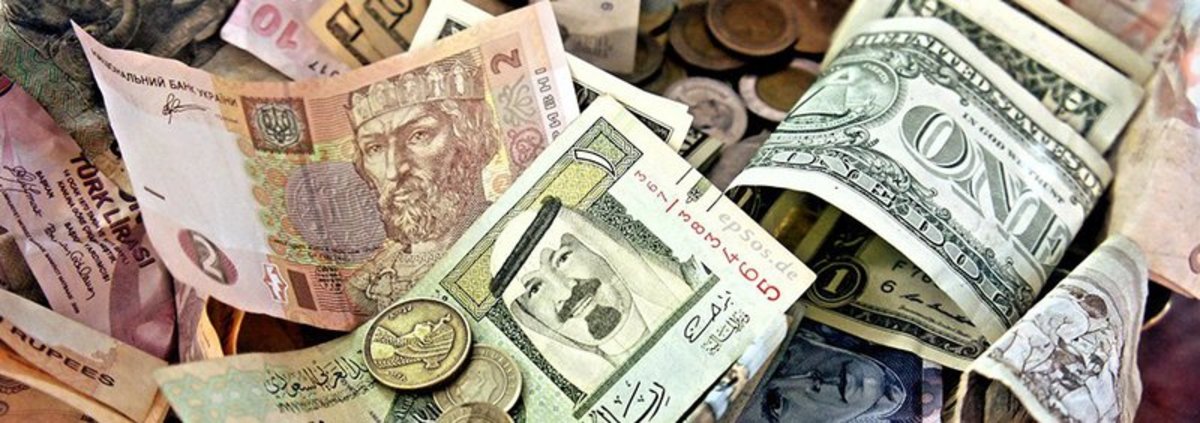
With the current onslaught of bitcoin-related applications and services it’s an interesting time to be a part of the greater digital currency community. The blockchain possesses a seemingly infinite number of use cases, and those who can think creatively and be the first movers in a certain sector are pioneering some of the those brilliant ideas into our everyday lives. The creation of many of these apps allow for the seamless and frictionless transference of value in a myriad of ways.
Abra, founded by its CEO Bill Barhydt, is currently preparing to disrupt the status quo and bring the future of cash to anyone with a mobile device. Bitcoin Magazine recently spoke with Barhydt on his personal history, and gained some intel on the vision of his company's mobile payment/remittance service, Abra.
Barhydt is a veteran in the payments technology/mobile industry, and has been working in the field for more than 20 years, going back to his days at Netscape directing business development; working on projects throughout the years in e-commerce, and mobile wallets almost 10 years ago. Barhydt has historically been ahead of his time, and spoke a bit about the company:
“I got the idea for Abra quite a long time ago. The holy grail is to be able to store cash on a smartphone and take it anywhere. I always knew what I had to do in a hyper-connected world. But there were a lot of underlying issues: handset compatibility, cost of bandwidth in developing markets, cost issues. I had an ‘aha’ moment where I realized all the tools were finally available for a global network. This was the impetus.”
The tools are all here. But the Bitcoin blockchain is the one essential piece of the puzzle that is finally enabling a service such as Abra to finally exist. We asked Barhydt what his initial reaction was when learning about bitcoin and the Bitcoin white paper:
“I was one of the first people to read the white paper. I’ve been on these mailing lists since back in my '90s long-hair days. I had been tracking it and staying current. When I saw the link, initially the title grabbed me, and I had done enough work to know anything mentioning ‘decentralized’ is a big deal. People just thought ‘Bill’s off on another one of this tangents.’ I had printed it out and I poured over it late into the night. I knew it was a total game-changer.”
Finally having these tools in place, Barhydt knew what he had to do. But what ultimately lead him to come up with the idea for “Abra" and what does he think of the other emerging remittance platforms in the bitcoin industry?
“Don’t look at ‘Abra’ like it's a remittance platform. Remittance is just a use case. Remittance is more a man-in-the-middle transfer solution. It’s a notable business, yes, but with Abra we’re turning phones into banks. And, because you store from your phone, you can do P2P transfer with anyone without a intermediary."
This is a great example of how Abra is differentiating itself from the competition that simply wants to aid in the transfer of funds digitally. Barhydt went on to discuss a few more points"
“Once you have a P2P (Peer-to-Peer) model it’s no longer remittance, it’s a P2P transfer banking solution. Eliminating intermediaries makes for a cheaper, more secure androbust system with less middlemen. One of the goals of Abra is make the best money transfer and payment solution in the world, replacing them with a P2P model for moving money around. At some point Abra is going to have the ability to make payments as well. Banks are not at risk from us; we don’t do credit, service loans, not a notary, etc. Our plan is to more so replace cash than banks. PESA in Kenya is a good example of this. The first generation of consumer Bitcoin apps will replace cash-based systems. "
Something such as Abra that seeks to use the blockchain to provide more freedom back to the people from a financial standpoint is seen as a positive and is reminiscent of a recent post on Fortune. Using blockchain technology allows for a more distributed financial system that lends power back to the people who need it the most.The blockchain is great for building next-generation financial applications. But what else is Abra’s system going to do to maintain its major differentiation? Barhydt shared what success looks like in the short term for Abra.
“I want to see Abra Tellers live in dozens of countries in the next year with millions of consumers transacting with each other.” Abra “Tellers” are a pivotal part of Abra’s magic in making money transfer more seamless. The tellers allow for you to add cash, or withdraw from your Abra app by finding the nearest trusted Abra teller and exchanging cash. You can also deposit cash into your account via a debit card.
Barhydt seems assured his short-term goal is achievable. But the long-term goals of an innovational organization such as Abra should always be considered.
“We gotta sell it [Abra] to consumers first. An incredible number of technical challenges still await while we continue building Abra. Smart contracts, user experience, building out our trusted-teller networks, actively engaging with regulators to explain how Abra works to gain more approval; it’s a never-ending process.
"Tellers are realizing they can make money. There are many pre-registers in multiple countries already. And, there's no current marketing or PR right now. Abra Tellers can make more money with the same cash they have. Faster is the incentive here. We’re creating a positive feedback loop of making money over time. People are getting that, slowly. Time will tell. There exists a chicken and an egg problem we have to solve.”
What everyone else in the Bitcoin community will care most about is the execution during the launch of this platform. We all love new features, however. So, we asked if there is anything in the pipeline we can look forward to as they continue to spread to other locations with their new innovative service.
“Payment APIs have been the number one request. ‘When can online merchants and etc. use Abra as a payment vehicle?‘ is a question we get often. We’ll be releasing that in the next few months. There are a bunch of other goodies, too, that we’re not quite ready to announce yet as well.”
Many merchants are obviously very eager to get their hands on a zero percent fee, secure payment system. With so many incentives, it’ll be a huge boon for the overall bitcoin community.
We also asked Barhydt what other initiatives in the Bitcoin space he’s most excited about.
“Exchanges are good, they create the ecosystem. I also read about a company called Streamium, I’m very impressed with them and excited for that use case. There aren’t enough startups solving consumer problems and negative affairs. We designed Abra to rid the consumer of pain. Using bitcoin came second. Nothing was better than using bitcoin.”
A blend of Streamium’s real-time streaming service and Abra’s upcoming payment API would be a positive move for the bitcoin industry. It makes for a sensible combination of complimentary services. Both are great examples of platforms using blockchain technology to empower people.
At the end at the end of our extended discussion, Barhydt shared this food for thought about Abra:
“As a company, we believe in the rights of the consumer and taking a part in commerce with their money. At Abra, we believe the right to the consumer comes before the government. We believe there are bad people out there who will do bad things, and government plays the role of being that intermediary; but that should not be at the expense of human rights. We’re staunch proponents of consumers rights, and we’re engaging with governments and regulators and understanding their perspectives and insights to reduce surprises. Regulators have not been a real issue thus far, with exceptions of that Ripple nonsense. Things are early. We think gaining mindshare and being transparent will eliminate the possibility of pushback.”
Abra is revolutionary: no transfer fees, a secure and private system that is instant and convenient, no foreign exchanges risks or bank account required. It is truly a service built for the people. This author, personally, is very excited for the future of digital cash.










